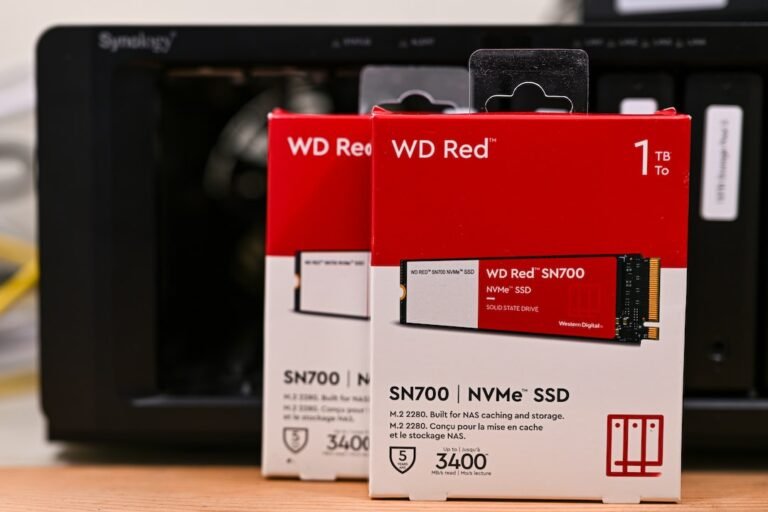Introduction
Have you ever wondered how your Wi-Fi network is protected from unauthorized access? How do you ensure that your Wi-Fi network encryption key is secure, preventing any potential breaches? In this article, we will delve into the world of Wi-Fi network encryption key management and explore effective strategies for maintaining strong security. By the end, you’ll have a comprehensive understanding of how to protect your Wi-Fi network and keep your data secure.
Securing Your Wi-Fi Network
Wi-Fi is the backbone of our modern connected lives. From browsing the internet to streaming movies, we rely on Wi-Fi networks for nearly everything. But with the convenience of wireless connectivity comes the risk of unauthorized access to our networks. That’s where encryption and key management come into play.
Encryption ensures that the data transmitted over your Wi-Fi network is protected and encrypted in such a way that only authorized devices can decrypt and access it. To achieve this, a unique encryption key is used to encode and decode the data. Without the correct encryption key, any intercepted data would be meaningless to potential attackers.
The Importance of Wi-Fi Network Encryption Key Management
Having a strong encryption key is essential, but equally important is the management of that key. The key serves as the safeguard for your network’s security, and any compromise in key management could potentially lead to unauthorized access and data breaches.
Effective Wi-Fi network encryption key management involves several key aspects, including:
Generating a Strong Encryption Key
When setting up your Wi-Fi network, it’s crucial to generate a strong encryption key. A strong encryption key is a combination of random characters, including upper and lower case letters, numbers, and special symbols. Avoid using easily guessable or common keys that could be susceptible to brute force attacks.
Regularly Changing Encryption Keys
Just like changing passwords, it’s a good practice to periodically change your Wi-Fi network’s encryption key. By doing so, you eliminate the risk of a compromised key being used to gain unauthorized access to your network. Aim for regular key rotation, such as every six months or annually.
Safely Storing Encryption Keys
Securely storing your encryption keys is paramount. Avoid writing them down on paper or storing them on easily accessible devices. Instead, consider using password management tools or encryption key management systems to keep your keys safe and easily retrievable when needed.
Restricting Access to Encryption Keys
Limiting access to your encryption keys ensures that only authorized individuals have the ability to manage and use them. Implement strong access controls and authentication mechanisms to prevent unauthorized users from making changes to your Wi-Fi network’s encryption keys.
Preventing Unauthorized Access with Strong Security
Wi-Fi network encryption key management plays a vital role in preventing unauthorized access, but there are additional measures you can take to enhance the overall security of your network.
Enable WPA2 or WPA3 Encryption Protocols
Make sure your Wi-Fi router is configured to use either the WPA2 or WPA3 encryption protocol. These protocols provide stronger encryption and security compared to older protocols like WEP. By using the latest encryption standards, you can ensure that your network is protected from common attacks.
Implement MAC Address Filtering
MAC address filtering allows you to specify which devices are allowed to connect to your Wi-Fi network based on their unique MAC addresses. By limiting network access only to known and authorized devices, you add an extra layer of security that prevents unauthorized devices from connecting to your network.
Regularly Update Router Firmware
Router manufacturers often release firmware updates that address security vulnerabilities and improve overall performance. It’s crucial to regularly check for and install these updates to ensure that your router’s security features are up to date and functioning optimally.
Use a Virtual Private Network (VPN)
A VPN encrypts your internet traffic, providing an additional layer of security when accessing the internet from your Wi-Fi network. By using a VPN, you can ensure that your data is encrypted end-to-end, even if it’s intercepted by unauthorized parties.
Enable Two-Factor Authentication (2FA)
Enabling two-factor authentication adds an extra layer of security to your Wi-Fi network’s management interface. By requiring a secondary method of authentication, such as a mobile app or text message code, you can prevent unauthorized individuals from accessing and making changes to your network settings.
Conclusion
In conclusion, effective Wi-Fi network encryption key management is crucial for maintaining strong security and preventing unauthorized access. Generating strong encryption keys, regularly changing them, safe storage, and restricting access are essential practices for protecting your network. Additionally, implementing strong security measures such as enabling WPA2 or WPA3 encryption, MAC address filtering, regular firmware updates, using a VPN, and enabling two-factor authentication further enhance the security of your Wi-Fi network.
By following these best practices and staying vigilant, you can ensure that your Wi-Fi network remains secure and your data protected from potential threats.
FAQ
| Question | Answer |
|---|---|
| How do I set up a secure Wi-Fi network at home? | For a step-by-step guide on setting up a secure Wi-Fi network at home, check out our article on home network setup. |
| What should I do if I encounter router issues? | If you’re experiencing issues with your router, our router troubleshooting guide can help you diagnose and resolve common problems. |
| How does Wi-Fi encryption prevent unauthorized access? | Wi-Fi encryption ensures that data transmitted over your Wi-Fi network is encoded and can only be decoded by authorized devices with the correct encryption key. |
| How often should I change my Wi-Fi encryption key? | It is recommended to change your Wi-Fi encryption key regularly, such as every six months or annually, to maintain security. |
| Can I use a VPN to secure my Wi-Fi network? | Yes, using a VPN adds an extra layer of security by encrypting your internet traffic, making it an excellent option for securing your Wi-Fi network. |
Further Reading
For more information on routers, Wi-Fi network security, and related topics, check out the following resources:
- Wireless Router Security: Protecting Your Home Network
- A Comprehensive Guide to Gaming Router Buying
- Troubleshooting Common Router Issues
- Exploring the Benefits of Mesh Wi-Fi Systems
- 5G Routers for High-Speed Internet Connectivity
- The Importance of Parental Control Routers
- A Guide to Open Source Router Firmware
- Enhance Network Security with VPN Routers
- The Role of Routers in Smart Home Integration
- The Best Routers for Fiber Internet
These resources will provide you with valuable insights and guidance to help you optimize and secure your Wi-Fi network.




